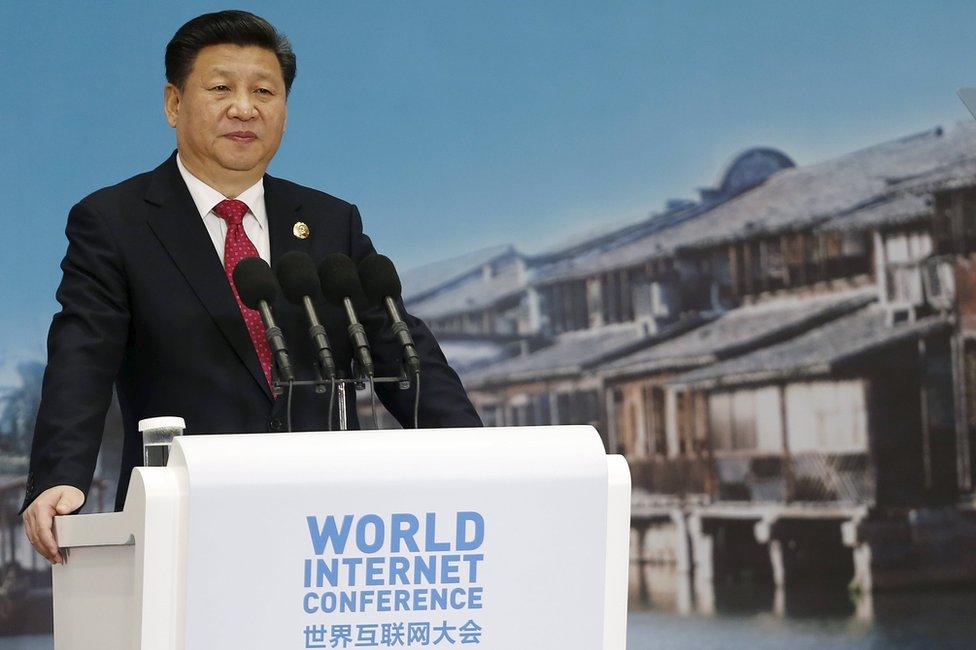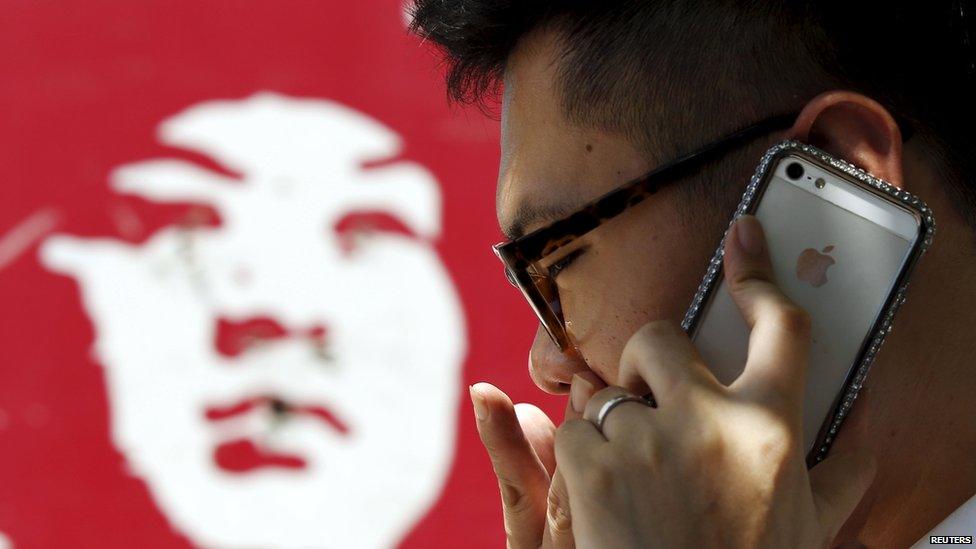China internet: Xi Jinping calls for 'cyber sovereignty'
- Published
China thinks your government should control your internet
China's President Xi Jinping has called on countries to respect one another's "cyber sovereignty" and different internet governance models.
Mr Xi said countries had the right to choose how to develop and regulate their internet.
He was speaking at the Beijing-sponsored World Internet Conference held in Zhejiang province.
China has been criticised for its strict internet regulations where it blocks major sites and censors posts.
The BBC's John Sudworth, who is at the conference, says the keynote speech by President Xi is a clear sign that internet security and control have been elevated to national priorities.
His message is that China, with 650 million internet users, should have a say in drawing up the global rules and that they should include the right to decide what to censor and block, our correspondent adds.

Analysis: BBC technology correspondent Rory Cellan-Jones
The idealistic internet pioneers - most of them American - saw the internet as a global community without borders, a space for free exchange of ideas untrammelled by national laws.
But whether it is China determined to shore up its Great Firewall, the US wanting to curb communications between terror groups, or indeed Europe debating at what age children should be allowed online, local politicians are asserting their right to bend the internet to their will.

The non-governmental organisation Reporters Without Borders has been urging foreign companies and governments to stay away from the conference because their attendance, it says, makes them complicit in a censorship regime in which almost 40 journalists are currently in prison for work posted online.
The event, which is in its second year, is being attended by leaders from Russia, Pakistan, Kazakhstan, Kyrgyzstan and Tajikistan, and representatives from technology groups.

Wednesday's event marks the second time China is holding what it calls the World Internet Conference
Our correspondent says last year's event ended in farce when the organisers attempted to push a "joint statement" under delegates' hotel doors, asking them to sign up to China's notion of its right to "national cyber sovereignty".
On Wednesday, Mr Xi also reiterated a call for countries to work together on internet security.
He said no country should pursue "cyber hegemony" or engage in activities that undermine others' national security, in remarks reported by state news agency Xinhua.

China's 'great firewall'

Beijing keeps the world's largest online population under tight controls
Access to the BBC's English-language website was temporarily blocked last year
Virtual Private Network (VPN) systems are among the latest online targets
This year web users were banned from posting under famous people's names

China has clashed with the US over hacking allegations, with both sides accusing each other of infiltrating networks to steal commercial and government information.
He advocated a global governance system to "curb the abuse of information technology, oppose network surveillance and hacking, and fight against a cyberspace arms race".
"There should be no unilateralism," the Chinese leader added. "Decisions should not be made with one party calling the shots or only a few parties discussing among themselves."
- Published16 December 2015
